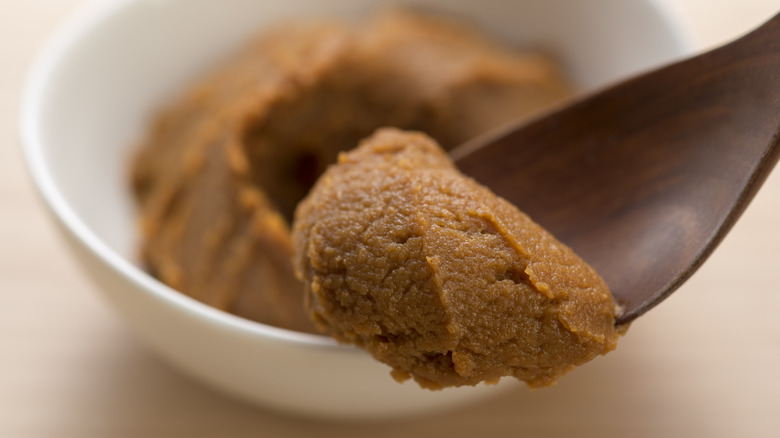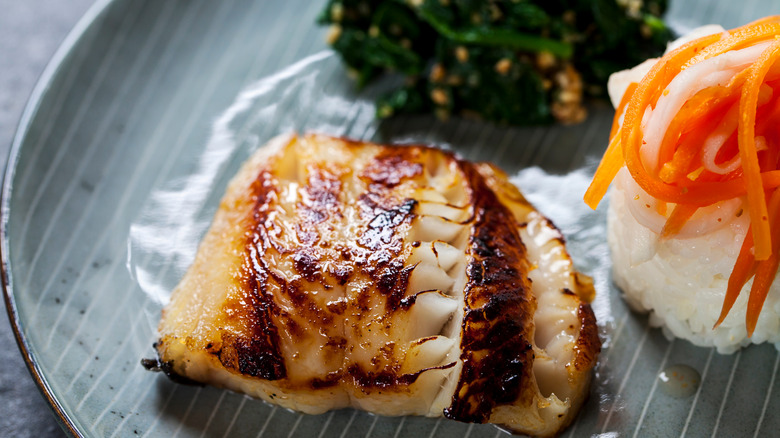The 2-Ingredient Butter That's Packed With Umami Flavor
You've heard of adding butter to miso ramen, but have you heard of miso butter? Now imagine biting into perfectly cooked cod or a roasted vegetable and experiencing an extra layer of savory richness that makes your taste buds sing. This layer of sumptuousness comes from a simple compound butter made with just two ingredients: miso and butter. It's creamy and harmonious and can elevate any dish it graces — spread it over toast, marinate succulent proteins with it, or slather it over vegetables like green beans, radishes, or sweet potatoes. Any way you use it, miso butter will add depth, richness, and deliciousness.
Miso butter is especially alluring to the palate because it's packed with umami flavor. Miso is a traditional Japanese paste made from soybeans fermented with Aspergillus oryzae culture, which is better known in the culinary world as koji mold or koji fungus. This fermentation process allows miso to bring the elusive fifth taste — umami or savoriness — to your palate. If you're familiar with monosodium glutamate (MSG), you know it's often added to foods to boost umami, and miso naturally contains glutamate. Combining it with salted or unsalted butter creates a potent vehicle for that coveted umami kick.
The versatility of miso butter beyond savory dishes
If you're ready to try miso butter, you're in luck, because making miso butter at home is a straightforward process. First, soften unsalted or salted butter to room temperature and mix it with your preferred type of miso paste — white for a mild and subtle sweetness, yellow for earthy flavors, or red for the strongest, most robust umami hit. Feeling adventurous? Try adding herbs and spices or even aromatics like minced garlic to the mix.
Beyond using it to glaze meats, season vegetables, and spread over toast, consider substituting miso butter in baking. Its umami richness can add complexity to cookies, cakes, and breads, offering an unexpected yet delightful twist. But if you're not ready to do more than slowly add it to your cooking, not to worry: Storage of this compound butter is a breeze. You can store it how you store your other homemade condiments, ideally in an airtight container in the refrigerator or freezer. You could also use parchment paper to shape the butter into a log or rectangle, which will make slicing and portioning it easy.
We can safely say that a few condiments are as simple, transformative, and versatile as miso butter. This magical kitchen marvel of a compound butter may soon become your go-to condiment, making everyday meals — and even baked goods — remarkably gourmet.

